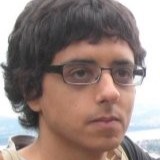Universidad Nacional de Educación a Distancia (UNED)
The National Distance Education University (UNED) is the largest public university in Spain and one of the leading online campuses in Europe. Founded in 1972, UNED has developed a strong commitment to widening access to higher education, combining academic excellence with technological innovation. Today, it is part of OpenEU, a European alliance of online universities that fosters cooperation in teaching, research, and knowledge dissemination across the continent.
UNED offers a unique multimedia infrastructure for content creation and knowledge transfer, including its own radio and television studios, digital learning platforms, and an extensive open-access repository. With over 200,000 students enrolled in undergraduate, graduate, and doctoral programs, the university combines accessibility with academic rigor, while promoting inclusive and lifelong learning.
UNED’s mission is to provide high-quality education and research opportunities to students regardless of geographical, social, or personal constraints. Its international orientation, extensive network of affiliated study centers, and partnerships with universities around the world make it a vibrant academic hub, committed to critical thinking, interdisciplinarity, and innovation in higher education.
Research
Research at UNED’s Faculty of Psychology covers a wide range of areas, including cognitive, developmental, clinical, educational, and social psychology. This diversity reflects the faculty’s size and its commitment to both basic and applied research.
Among its various initiatives, the PSICH research group (Psychology, Subjectivity, and Culture) has developed a distinctive line of work in cultural psychology and qualitative inquiry. Its projects address themes such as citizenship, gender, subjectivity, collective memory, and grief, exploring how psychological life is shaped by cultural and historical contexts. Methodologically, the group relies on narrative and discourse analysis, ethnographic approaches, and interpretive frameworks, contributing to a richer understanding of the interplay between psychology and culture.
These efforts complement the faculty’s broader engagement with national and international research programs. UNED fosters interdisciplinary collaboration and participation in European networks, while also investing in the dissemination of scientific knowledge through its extensive multimedia infrastructure.
How to get involved?
Students from other universities are welcome to engage with UNED’s academic community through a variety of international programs. UNED actively participates in the Erasmus+ program, offering undergraduate, master’s, and doctoral students opportunities for academic exchange and research stays. In addition, the university has developed a wide network of bilateral agreements with institutions across Europe, the Americas, Asia, and Africa, facilitating both incoming and outgoing mobility.
These opportunities allow students not only to attend courses but also to collaborate in research projects, carry out supervised internships, and build international academic networks. For example, UNED maintains cooperation agreements with universities such as Université Sorbonne Nouvelle (France), Freie Universität Berlin (Germany), Universidade de São Paulo (Brazil), and University of California, Berkeley (USA), among many others.
Thanks to its extensive network of affiliated study centers, UNED is able to provide international students with access to both online and local academic support, ensuring that mobility experiences are academically rigorous and logistically feasible. In this way, the university strengthens its role as an open and global institution, committed to the free circulation of knowledge and people.
Ph.D. students: Doctoral training at UNED is coordinated through its International Doctoral School, which brings together a wide range of research areas and fosters an international and interdisciplinary environment. The school regularly organizes activities that promote academic exchange and advanced training, such as seminars, methodological workshops, and thematic schools. A recent example is the 1st International Winter School for Doctoral Students, organized within the framework of the OpenEU Alliance, which provided a space for young researchers to share their projects with peers and leading scholars from across Europe.
Among the doctoral programs offered, the Ph.D. Program in Diversity, Subjectivity and Socialization stands out for its transdisciplinary orientation, bringing together perspectives from psychology, anthropology, history, education, and related fields. This program addresses key contemporary issues such as identity, interculturality, socialization processes, and the construction of subjectivities in diverse contexts. Doctoral candidates are encouraged to engage with qualitative methodologies and to critically reflect on the links between knowledge production and social transformation.
Scientists: UNED encourages cooperation with international scholars through programs such as Erasmus+ and a wide network of bilateral agreements. Visiting researchers can participate in teaching, joint projects, or doctoral supervision, and benefit from the university’s strong multimedia and digital infrastructure.
Conference participation:

XVI International Congress on Research and Professional Practice in Psychology. November 27–29, 2024. University of Buenos Aires, Argentina.
Representative
Ignacio Brescó de Luna is an Associate Professor at the National Distance Education University (UNED, Spain) and an external researcher at the Centre for Cultural Psychology and the Culture of Grief Centre at Aalborg University (Denmark). His research is rooted in a sociocultural approach to psychology, with a particular focus on how diverse cultural artefacts—ranging from narratives and memorials to photography and emerging technologies such as AI-powered griefbots—mediate processes of memory and mourning. He has held research stays in the United Kingdom, Brazil, Germany, Argentina, and Japan, experiences that have strengthened his interdisciplinary and international perspective. At present, his work develops along two complementary lines: on the one hand, the study of griefbots as new technological mediators of personal and social grieving, and on the other, the analysis of experiences of memorials as spaces of collective memory and loss, pursued within the European project Making Histories, where he serves on the executive committee.
Books / Edited Books Chapters
Articles and paper presentations (selection):
- Brescó, I. & Wagoner, B. (2025). The psychology of memorial sites: Space, design and visitor experience. Current Opinion in Psychology, 66, https://doi.org/10.1016/j.copsyc.2025.102144
- Brescó, I., & Jiménez-Alonso, B. (2024). Deathbots. Discussing the use of Artificial Intelligence in grief. Studies in Psychology, 45(1), 103-122. https://doi.org/10.1177/02109395241241387
- Brescó, I., & Wagoner, B. (2024). Memorials from the perspective of experience: A comparison of Spain’s Valley of the Fallen to contemporary counter-memorials. Memory Studies, 17(2), 349-369. https://doi.org/10.1177/17506980221126943
- Brescó, I., Li, Y. & Wagoner, B. (2023). Between War and Peace, Past and Future: Experiencing the Hiroshima Peace Memorial Park. Integrative Psychological and Behavioral Science, 57, 1002-1023 https://doi.org/10.1007/s12124-022-09723-2
- Jiménez-Alonso, B. & Brescó, I. (2022). Grief, Photography and Meaning Making: A Psychological Constructivist Approach. Culture & Psychology, 28(1), 107-132 https://doi.org/10.1177/1354067X211015416
- Brescó, I. (2017). The end into the beginning. Prolepsis and the reconstruction of the collective past. Culture & Psychology, 23(2), 280-294. https://doi.org/10.1177/1354067X17695761


